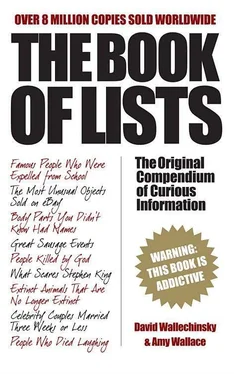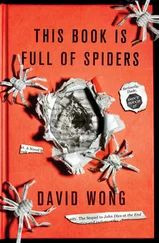FRED THOMPSON
A veteran character actor, Thompson had prominent roles in the movies The Hunt for Red October (1990) and In the Line of Fire (1993). A Republican from Tennessee, he was elected to the US Senate in 1994. In the fall of 2002 Thompson joined the cast of the NBC series Law and Order , becoming the first serving US senator with a regular television acting job. He left the Senate when his term ended in January of 2003.
JESSE VENTURA
Jesse ‘The Body’ Ventura first emerged as a star in the World Wrestling Federation. He parlayed that fame into a movie career, appearing with Arnold Schwarzenegger in Predator (1987) and with Sylvester Stallone in Demolition Man (1993). In 1998 he was elected Governor of Minnesota as the candidate of the upstart Reform Party. He drew fire from critics for appearing as a TV commentator for the short-lived XFL (Extreme Football League) and being a celebrity referee at a WWF event while still in office. He served one term, choosing not to run for re-election in 2002.
– D.W. & C.F.
THE 10 WORST LIVING DICTATORS
1. KIM JONG IL, North Korea
In power since 1994.
There has been so much discussion about Kim Jong Il’s development of nuclear weapons that it has tended to deflect attention from the fact that Kim’s government represses its own people more completely than any other dictatorship in the world. Each year, the human-rights group Freedom House ranks every country according to its level of political rights and civil liberties. North Korea is the only nation to earn the worst possible score for 31 years in a row. According to the organisation Reporters Without Borders, North Korea also ranks in last place in its international index of press freedom. The US Committee for Human Rights in North Korea estimates that 150,000 Koreans perform forced labour in prison camps created to punish alleged political dissidents and their family members, as well as North Koreans who fled the country to China but were forced back by the Chinese government.
Although Kim Jong Il, who inherited leadership from his father, Kim Il Sung, is often portrayed as being crazy, he is actually a clever and efficient manipulator of his people. He is also the author of the books On the Art of the Cinema and On the Art of Opera .
2. THAN SHWE, Burma
In power since 1992.
General Than Shwe has survived a power struggle to emerge as the sole leader of Burma’s military dictatorship. Because Than Shwe represents the hard-line faction, his rise has turned an already awful human rights situation even worse. Burma has more child soldiers than any nation in the world and the Burmese regime continues to kidnap normal citizens and force them to serve as porters for the military in various conflicts against non-Burmese ethnic groups. In 1990 the party of Nobel Peace Prize winner Aung San Suu Kyi won 80% of the vote in an open election. The military cancelled the results. Suu Kyi has spent most of the ensuing years under house arrest. On May 31, 2003 hired thugs attacked Suu Kyi’s motorcade, killing several of her supporters and arresting dozens of others including Suu Kyi herself. She has since been returned to house arrest. Unlike most dictators, Than Shwe is not a public figure, preferring to work behind the scenes. Consequently, even the Burmese people know little about him. Than Shwe has promised new elections… in four or five years.
3. HU JINTAO, China
In power since 2002.
Trained as a hydraulic engineer, Hu Jintao joined the Communist Party in 1964 and spent the next 38 years slowly moving his way up the Party hierarchy. Along the way he proved himself to be quiet, efficient and willing to do whatever was necessary to promote his own advancement. While serving as Party Secretary of Tibet, he did not hesitate to administer martial law and to oversee the killing of unarmed demonstrators. Now that he is General Secretary of the Communist Party of China, Hu, although not all-powerful, is the leader of an unusually repressive regime. Apologists point to China’s economic liberalisation and claim that the Chinese human rights situation is better than it used to be. However, the Communist Party still controls all media and uses 40,000 ‘Internet security agents’ to monitor online use. More than 200,000 Chinese are serving ‘re-education’ sentences in labour camps and China performs 4,000 executions a year, more than all the other nations of the world combined, and many of them for non-violent crimes.
4. ROBERT MUGABE, Zimbabwe
In power since 1980.
Robert Mugabe began his reign with widespread domestic and international support. After leading a successful anti-colonial war of liberation, he was elected independent Zimbabwe’s first president. But over the years he has displayed increasingly dictatorial tendencies. According to Amnesty International, in 2002 alone, Mugabe’s government killed or tortured 70,000 people. Unemployment is above 70% and inflation 500%. Mugabe has been accused of blocking the delivery of food aid to groups and areas that support the main opposition party. He has continued to hold elections, but has restricted the opposition’s ability to campaign and has shut down media that do not support him. When opposition leader Morgan Tsvangirai won 42% of the vote anyway, Mugabe had him arrested and charged with treason. As his support has slipped, Mugabe has played the race card, confiscating farms owned by white people and turning them over to his supporters.
5. CROWN PRINCE ABDULLAH, Saudi Arabia
In power since 1995.
Crown Prince Abdullah has been the acting leader of Saudi Arabia since his half-brother, King Fahd, suffered a stroke in 1995. Saudi Arabia is one of the only nations that holds no elections whatsoever. The royal family has promised municipal elections in the coming year, but has not announced if women will be allowed to vote. In fact, it is forbidden for unrelated Saudis of the opposite sex to appear in public together, even inside a taxi. Women are not allowed to testify on their own behalf in divorce proceedings and, in all court cases, the testimony of one man is equal to that of two women. According to the US State Department, Saudi Arabia continues to engage in arbitrary arrest and torture. During a human rights conference in October ’95, Saudi authorities arrested non-violent protesters who were calling for freedom of expression, and some were later flogged, which is the normal punishment for alleged political and religious offences. Under pressure from world opinion, the government announced that people living in Saudi Arabia may practise religions other than Sunni Islam, as long as they do so privately, inside their homes. In one of the more unusual manifestations of control, the religious police forbade children from playing with Barbie dolls, which they dubbed ‘Jewish dolls’ that are ‘symbols of decadence of the perverted West’.
6. TEODORO OBIANG NGUEMA, Equatorial Guinea
In power since 1979.
This tiny West African nation (pop. 500,000) was a forgotten dictatorship until major reserves of oil were discovered in 1995. Since then, US oil companies have poured billions of dollars into the country. Although the per capita annual income is $4,472, 60% of Equatoguineans live on less than $1 a day. The bulk of the oil income goes directly to President Obiang, who has declared that ‘there is no poverty in Guinea’. Rather, ‘the people are used to living in a different way’. In July, state radio announced that Obiang is ‘in permanent contact with the Almighty’, and that ‘He can decide to kill without anyone calling him to account and without going to Hell.’ There is no public transport, no newspapers and only 1% of government spending goes to health care. Nonetheless, the US government reopened its embassy in October after it had been closed for eight years as a protest against human rights abuses. When asked why so much of his nation’s oil revenue is deposited directly into his personal account at the Riggs Bank in Washington, DC, Obiang explained that he keeps total control of the money in order to ‘avoid corruption’.
Читать дальше












